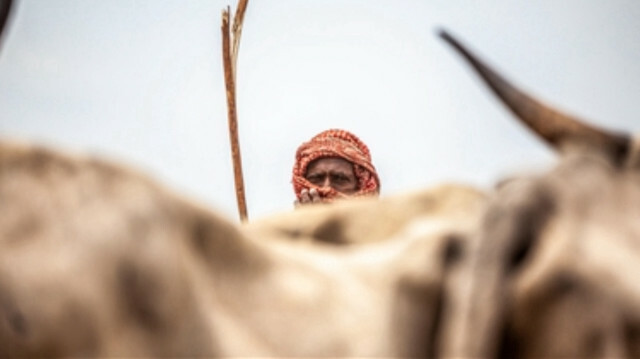
Expanding wildlife conservation area to render over 70,000 native herdsmen without grazing land
Thousands of Maasai pastoralists in northern Tanzania are protesting a renewed government move to demarcate swaths of land in the Ngorongoro district and Loliondo ward for the protection of wildlife sanctuaries, saying they will no longer have area for cattle grazing.
The semi-nomadic pastoralists whose livelihoods depend on cattle rearing have repeatedly accused the government of using wildlife conservation as a pretext to evict them from their ancestral land.
The root cause of the problem, they say is that the government wants to give exclusive hunting rights in the disputed 1,500 square kilometers (579 square miles) wildlife corridor in Loliondo to foreign investors. However, the government has defended its move, saying it is looking for wider national interests that are necessary for wildlife conservation.
- Village land
According to the country’s 1999 legislation that governs the land management, all land in Loliondo is classified as “village land."
For many years, the government has accused Maasai communities and their cattle herds in Loliondo and Ngorongoro of encroaching on important wildlife breeding grounds and disrupting migratory routes for wildebeests.
Local Maasai leaders in the disputed areas have called the latest move to establish a wildlife corridor on their ancestral land "absurd," claiming that it would effectively deny thousands of herders a place to live as well as access to pasture and water for their animals.
"Imagine your home being burned in front of you to clear your land for foreigners to hunt," said Julius Petei Olekitaika, a traditional Maasai Leader, adding: "Imagine not being able to graze our cows because the government wants to protect a foreign investor whose only interest is hunting the wildlife."
He accused the government of violating their rights to life and inflicting long-term damage to their cultural heritage.
"They want to take away not only our rights as a people but also the symbiosis that connects us with spirits, animals, plants, water, and land, which will be disrupted if this land is taken away,” said Olekitaika.
“Losing this land is tantamount to losing our traditional way of life. We will not accept it,” he said.
Since the country’s independence, another traditional leader Raphael Long’oi said, the Maasai have lost over 70% of their land to conservation and government-backed investments.
“We call on human rights groups worldwide, and people who value indigenous human rights, to defend our cause,” he told Anadolu Agency.
The Maasai are capable of protecting the environment and they have done so for many years, he added.
For decades, the Loliondo and Ngorongoro areas have been embroiled in land disputes. In 1992, the move to lease the Game Controlled Area in Loliondo to an investor from the UAE for trophy hunting provoked anger among native Maasai, who claimed the licensing process was opaque and they had been largely excluded.
In 2013, then-President Jakaya Kikwete called off the government's plans to evict Maasai pastoralists from a disputed area after an online campaign opposing the move garnered over 2 million signatures.
Early this year, the government began putting beacons on a disputed area in Loliondo, ostensibly to create a protected area, displacing tens of thousands of cattle herders.
According to a local resident, police are planning to forcibly evict all residents from the area.
Meanwhile, the government is also drawing plans to implement new land use and resettlement plan in the Ngorongoro Conservation Area, which observers say would greatly reduce the area where Maasai are allowed to live and use for livestock grazing and crops cultivation.
Local Maasai leaders say about 80,000 residents, mostly indigenous Maasai, will be forced to relocate to other areas where their traditional livelihoods cannot be sustained.
John Mongela, the regional commissioner of Arusha, recently stated in Loliondo that the disputed land would be demarcated by hook or by crook to serve larger national interests.
"My position is a national interest ... and if it is a national interest, a disputed area will be demarcated, even if by someone else," he said.
The Maasai, a semi-nomadic ethnic group in northern Tanzania that has coexisted peacefully with wildlife for centuries while protecting the area's ecological balance, have come under increasing pressure from commercial interests that threaten their way of life.
- Distinctive way of life
Drought and loss of grazing land have forced the Maasai, known worldwide for their distinctive way of life, to abandon traditional rural livelihoods in favor of wildlife conservation and commercial hunting. The Maasai are one of the world's largest ethnic groups, roaming across southern Kenya and northern Tanzania.
Loliondo residents have urged the government to recognize the disputed area as legitimate village land rather than a conservation area.
Onesmo Ole Ngurumwa, the national coordinator of the Tanzania Human Rights Defenders Coalition -- a human rights umbrella organization -- urged the government to abandon its plan to take away legitimate village land.
"When people are evicted from one area to another, the laws governing land management must be followed," he explained.
Ngurumwa urged President Samia Hassan to give the people of Loliondo the benefit of the doubt and allow them to present their woes to her so that she can resolve the conflict once and for all.
“We call upon the president to give the people of Loliondo the opportunity to present their woes … so as to bring to an end this dispute that has been raging for quite too long,” he said.
Hello, the comments you share on our site are a valuable resource for other users. Please respect other users and different opinions. Do not use rude, offensive, derogatory, or discriminatory language.
The floor is all yours.








